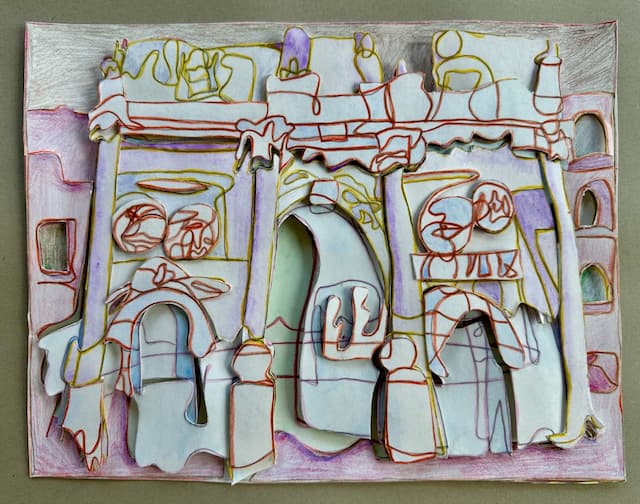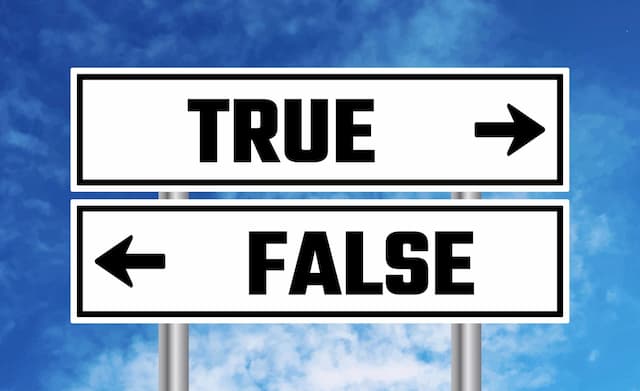What is baptism with the Holy Spirit? (Matthew 3:11-12)
John the Baptist coined this term, as a way of contrasting his ministry with Jesus’. What did he mean?
Open Matthew 3:11-12.
What is baptism with the Holy Spirit? John said he baptized with water, but the coming king would baptize his people with Holy Spirit and fire. All later uses of this phrase refer back to John (except 1 Corinthians 12:13), so understanding what he meant is crucial to understanding the phrase.
There are three main views of Holy Spirit baptism:
- Regeneration: Salvation is a work of the Holy Spirit. When you are reborn, you are baptized into Christ by the Spirit. By the Spirit (not in the Spirit) is a possible translation. This is the traditional interpretation.
- Holiness: In the 1700s, Wesley taught that you could receive a second grace (after salvation) that sanctified you completely. The Wesleyan holiness tradition understands baptism with the Holy Spirit and fire as the purifying work of the Spirit.
- Empowerment: In the 1800s, some became convinced that the second blessing was not so much personal piety as empowerment by the Spirit, resulting in the gifts. For Pentecostals, speaking in tongues was the evidence of Holy Spirit baptism. The Charismatic movement spread this approach to other denominations.
Advocates of these positions tend to hold their views intensely. It’s as if they fear that if Holy Spirit baptism doesn’t mean tongues, then we lose tongues. Of if it doesn’t mean holiness, then we lose the emphasis on sanctification. That’s not the case: tongues is a gift of the Holy Spirit, discussed in several places in the NT, and valid in its own right. Holiness is an important theme in the whole Bible, from the Book of Leviticus onwards.
So we need to affirm that the Holy Spirit does all three of these things. He regenerates us: without being reborn by the Spirit, we would have no life in us. He sanctifies us: there is no other effective purification of the believer. He empowers us: without his prophetic and miraculous gifts, we cannot accomplish what God wants to do. All three views describe part of the work of the Spirit, but which one correctly understands the baptism with the Holy Spirit?
To get an answer, we need to ask, What did John mean? That’s the question, because Jesus, Peter, and Paul explicitly refer to John’s meaning (Acts 1:5; 11:16; 19:4).
John used the phrase to contrast Jesus’ ministry with his own. John was a Jewish prophet announcing the restoration of God’s government. Jesus was about to establish the kingdom of God, and John was clearing the building site (preparing the way). He offered purification by washing (baptism), calling people to submit to their sovereign (repent). But John was not the one to purify Israel. He felt unworthy to carry the king’s sandals, let alone his message. The Messiah, not John, would purify his people. He would flood his people with the Spirit in a way that Old Testament people had never known.
John was announcing the radical difference between his own ministry and that of Jesus. Prior to Jesus’ coming, the Holy Spirit came on a few leaders only: some judges, prophets, kings, and priests. For the people in general, the holy presence of God was in the temple in Jerusalem, and they were not allowed in. The courtyard of the temple separated holy space from the profane world. Only priests could enter the holy space of the temple, and even they could not enter the Most Holy Place where God was present.
Then, in Jesus, God did the unimaginable. He stepped outside the holy space to walk in the profane world! It was a dangerous move — God stepping out where humanity could kill him. What happens when God steps into the unclean world? Does God get dirty? Or does the world become clean? That’s what those stories about unclean people like lepers are telling us: anyone who touched a leper became unclean, but when Jesus touches them they become clean! It’s what Jesus does: he cleanses the world so God can live among us again.
Prophets like Joel saw how this would radically change the world. God’s holy presence would not be limited to a few leaders or a small spot on Mount Zion. God would pour out his Spirit on all his people: young/old, male/female, slave/free (Joel 2:28-29). John realized that the crowd he was baptizing was just a blip compared to what the Messiah would do. Like Joel, John saw the Messiah flooding his people with his Spirit in a way the Old Testament saints had never known.
When Jesus gave himself to purify his people, God raised him up, giving him all authority in heaven and on earth. His first act as newly enthroned king was to pour out the divine presence on the realm he had cleansed (Acts 1–2). He flooded his kingdom with the Spirit, initiating a grass-roots kingdom where everyone has the power of the king to love on his behalf. Earth had seen nothing like this since the beginning! With the power of the Spirit, humans become what we were designed to be—living images of our reigning king.
So when John spoke of the baptism with the Holy Spirit, he was not speaking of individual experiences of regeneration, sanctification, or empowerment. He was seeing that moment in history, in AD 30, when the Messiah would restore the divine presence to creation.
As a result of what Jesus did, we experience the Holy Spirit’s work. He regenerates us (new birth). He sanctifies us (but not as a moment of second blessing). He dispenses gifts so we can enact his love (but not as a moment marked by tongues). All these things flow into our lives because our anointed king has given his anointing to his people. He has poured out the Spirit on all his people, as the world had never known.
Baptism with the Holy Spirit is not a personal experience, though our experiences flow from it. John was talking about that moment in history when Jesus provided cleansing and poured out his Spirit for all his people. As a result of that moment, the Holy Spirit is at work today—regenerating, sanctifying, and empowering servants of the king. We live, grow, and operate as his grass-roots kingdom because the anointed ruler gave his anointing to his people. We live in a realm flooded with his Spirit. What a sovereign!
What others are saying
F. L. Cross and Elizabeth A. Livingstone (eds), The Oxford Dictionary of the Christian Church (Oxford; New York: Oxford University Press, 2005), 154:
‘baptism, in the Holy Spirit’. A doctrine best known today in its Pentecostal form. Pentecostals generally claim that the believer is empowered for Christian witness through a unique action of Christ (cf. Mark 1:8), distinct from conversion or sacramental Baptism (‘water baptism’). They maintain that, as the Holy Spirit fell on the first Apostles, so those summoned to be likewise ‘filled’ (cf. Acts 2:4) are ‘baptized with the Holy Spirit’ (cf. Acts 11:15 f.), and that the normal outward sign of this ‘baptism’ is their breaking into tongues (glossolalia) (cf. Acts 10:44–7). This criterion is the specifically Pentecostal contribution to the doctrine, which had its origins in J. Wesley’s teaching on perfection as it was developed in the 19th-cent. American Holiness movement.
R. A. Torrey, The Baptism with the Holy Spirit. (New York; Chicago: Fleming H. Revell, 1895), 24:
The Baptism with the Holy Spirit is the Spirit of God coming upon the believer, taking possession of his faculties, imparting to him gifts not naturally his own, but which qualify him for the service to which God has called him.
Vinson Synan, An Eyewitness Remembers the Century of the Holy Spirit (Grand Rapids, MI: Chosen, 2010):
The most significant difference that existed between the two movements was that Pentecostals held tenaciously to the teaching that speaking in tongues was the necessary “initial evidence” of post-conversion baptism in the Holy Spirit, while the new charismatics in mainline churches saw tongues as one of the charismata, which might or might not come at the time of the Pentecostal experience. To charismatics, all of the other gifts of the Spirit were also signs of the infilling with the Holy Spirit.
Update 2017-01-12: Testament of Benjamin 9:3 contains the following Christian interpolation, illustrating how early Christians understood the outpouring of the Holy Spirit by Jesus in AD 30:
He shall enter the first temple, and there the Lord will be abused and will be raised up on wood. And the temple curtain shall be torn, and the spirit of God will move on to all the nations as a fire is poured out. And he shall ascend from Hades and shall pass on from earth to heaven. I understand how humble he will be on the earth, and how splendid in heaven.
[previous: Heaven’s proclamation of Jesus]
[next: The Spirit led Jesus to be tested?]
Seeking to understand Jesus in the terms he chose to describe himself: son of man (his identity), and kingdom of God (his mission). Riverview College Dean
View all posts by Allen Browne








